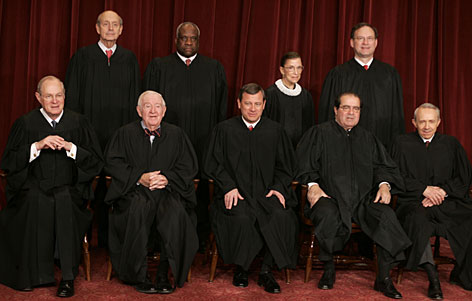Feingold: Sept. 11 Prosecutions Will Advance Justice and American World Standing
The decision to prosecute five people accused of involvement in the Sept. 11, 2001, terror attacks in federal court in New York drew support Friday from US Sen. Russ Feingold (D-Wis.) in comments at a one-hour discussion at Marquette University Law School.
“That’s the way to go,” said Feingold, who has been highly critical of the long confinement, without trial, of the suspects at the military prison in Guantanamo Bay, Cuba.
At the same time, US Attorney General Eric Holder Jr. announced that several other suspected terrorists will be tried in military courts. That group includes Ad Al-Rahim al-Nashiri, who allegedly planned another major attack, the bombing of the Navy destroyer Cole in 2000 in Yemen.
The decisions to go the two different routes in the cases will provide an interesting opportunity to compare civil and military handling of cases of this kind, Feingold told Mike Gousha, who moderated the session and who is a distinguished fellow in law and public policy at the Law School.
Feingold said bringing the Sept. 11 suspects, including Khalid Shaikh Muhammed, who has claimed he masterminded the attacks, into civil courts and allowing the justice system to proceed to a verdict on their cases is the appropriate course, said Feingold, a member of the Senate’s Judiciary Committee. “This advances not only our legal system, but our credibility in the world,” he said.

 For the second autumn in a row, the federal public defenders here in Milwaukee were kind enough to invite me to speak on the U.S. Supreme Court’s criminal docket, reviewing last term’s cases and previewing the new term. The event is a great opportunity for me to think about patterns and themes that cut across individual cases. I plan now to recapitulate some of my obervations in a series of short blog posts over the next couple weeks. This is the first.
For the second autumn in a row, the federal public defenders here in Milwaukee were kind enough to invite me to speak on the U.S. Supreme Court’s criminal docket, reviewing last term’s cases and previewing the new term. The event is a great opportunity for me to think about patterns and themes that cut across individual cases. I plan now to recapitulate some of my obervations in a series of short blog posts over the next couple weeks. This is the first.